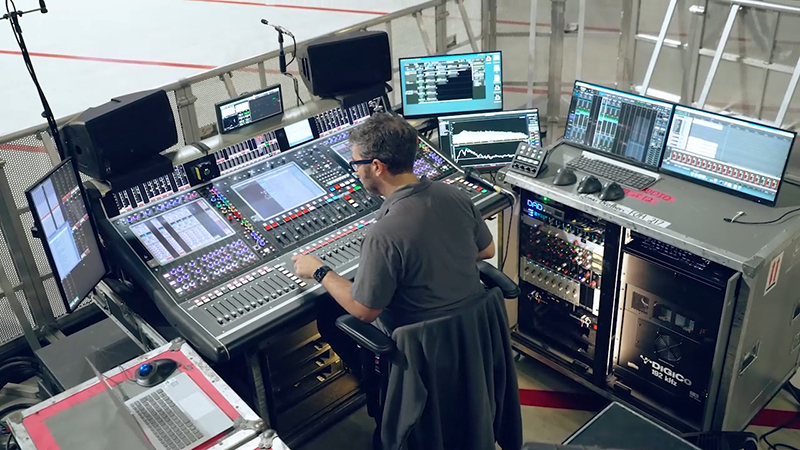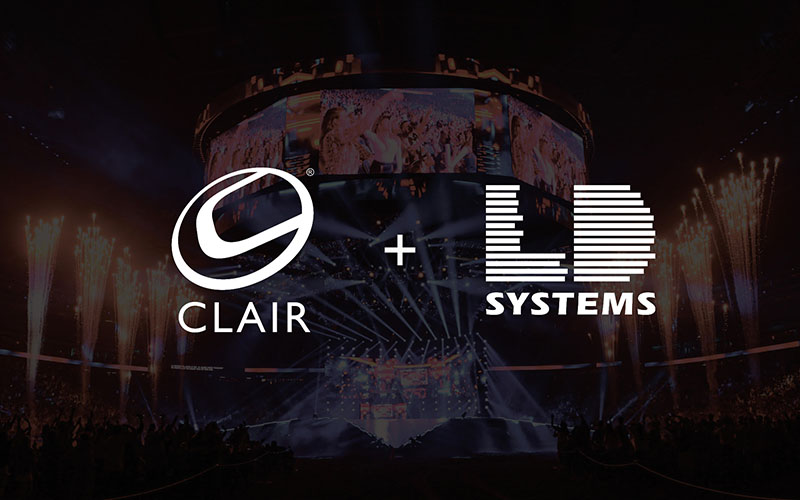
NORTH AMERICA – Since Pantera returned to the live stage after a two-decade hiatus in late 2022, the reformulated metal band has toured across North America and also joined the U.S. shows on Metallica’s M72 world tour. System engineer Alex Hollinger has been using an Outline Newton FPGA processor at the heart of his control setup, which also includes Midas’ new HD-96 mixing console and a Meyer Sound Galaxy processor.
More details from Outline (www.outline.it):

One of the most eagerly awaited returns in the world of heavy rock finally happened in December 2022 as hugely influential American metal band Pantera played their first show in over two decades at Mexico’s Hell & Heaven Metal Fest, with the band’s new lineup featuring original members Philip Anselmo and Rex Brown plus new alumni Charlie Benante and Zakk Wylde.
Since then, the band have continued to tour across North America in addition to a number of spring dates and festivals in Europe plus a number of shows opening for Metallica, to great acclaim from their very loyal and international fanbase.

System engineer Alex Hollinger has been using an Outline Newton FPGA processor at the heart of his control setup. He explained how it is configured and also how its combination with the latest digital mixing console from Midas, the HD-96, offers a technical advantage that is presently unique in the world of live sound.
“We are feeding the Newton with AES as well as MADI Co-Ax from the console for redundancy, in addition to analog feeds from the monitor console for an added layer of backup. We are also sending the Newton a MADI feed from a MADI-to-AVB converter to use a Meyer Sound Galaxy processor as an immersive-system insert for when we can use a frontal system,” Hollinger said.

“From the beginning of Pantera’s celebration tour, they always held sonic quality above everything else, and the FOH engineer Eddie Mapp chose the new Midas HD-96 to deliver a clear and defined picture of what Pantera is. When it came to picking a drive processor, we didn’t want to alter the signal in any way, allowing us to achieve as clear of a sonic picture as possible,” Hollinger added.

“It has been incredible to use the combination of a console with 64-bit processing along with the Newton that also runs at 64-bit internally to provide the utmost possible clarity – right now, a unique combination in live sound, as far as I’m aware. When using the Newton WFIR filters that are being processed in that way it’s clear and defined, there are no odd harmonics generated, just the altered signal and nothing else. I do believe that 64-bit is the future because bit depth doesn’t only give you more headroom, it also gives you truer audio definition and a clarity that is unmatched,” he continued.

“For me as the system engineer, the Newton has helped in my day-to-day workflow, being able to have so much flexibility at my fingertips with filters, backups, signal types and much more. We have used every format that the processor provides to feed different systems around the world while on tour, with the utmost reliability and stability in the audio chain. I also use the Smaart API overlay that the processor provides to be able to see what is happening live over what has already been done to the system to adjust throughout changing environments. The Newton also gives a lot of flexibility in ways and formats of measuring your audio system and sources to ensure you see the clearest picture of what is being provided to the audience.”

Along system engineer/crew chief Alex Hollinger and FOH engineer Eddit Mapp, the Pantera audio team includes monitor engineer Jerrell Evans, monitor tech Lance Brozovich and P.A. techs Devon Nutty and Abigail Dannewitz.



